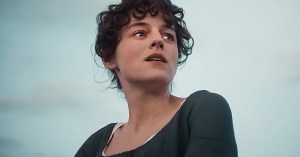Ten Questions with Flash Point Star Donnie Yen
Talking with the action star of Hero and Iron Monkey.

Donnie Yen is the connoisseur’s martial artist. Quite possibly more than any other recognized Hong Kong action star, Yen’s fight scenes have consistently “raised the bar” for the genre. His breakthrough role in 1992’s Once Upon a Time in China II featured a fight with Jet-Li that’s something of a yardstick for action in the genre. Americans might remember him best as Sky, the legendary swordsman and the first opponent (or ally) of Nameless (Jet Li). Though brief and shrouded in grey and rain, his fight in Hero is instantly memorable and full of the trademark feats of physicality you’ll find in any film he commits himself to.
The son of Wushu master Bow Sim Mark, Yen’s dexterity in the martial arts is hard to match. He’s worked in so many varieties and trained so extensively it seems hard for a film production like Flash Point to hope for a more appropriate star to cast. With mind-boggling fight choreography, Flash Point was honored with multiple awards in it’s native Hong Kong and will likely go on to engage the MMA attracted audiences stateside as well. The film stars Yen as a detective trying to save his undercover partner (Louis Koo) from a deadly trio of gangster brothers including Collin Chou, and is in limited release now.
Flash Point features some really impressive mixed martial arts. You have an extensive background in martial arts but I would still think the training would be challenging. Was it challenging? What new things did you have to learn to prepare?
Donnie Yen: The real challenge was in meeting my own expectations. I have such huge respect for MMA fighters, and I was determined that we should make every effort to present their art cinematically, without compromising on the techniques and “reality” of what they do. I underwent MMA training, I watched hours of fight footage and, in the end, I think we came close to capturing the MMA flavor in our fight scenes. The biggest challenge, for me was doing repeated takes of the movements that I choreographed for myself. Sometimes it really did feel like I’d been in a real fight!
I understand that part of the allure of Mixed Martial Arts is the realism of mistakes: Two people can punch at the same time, or sometimes punches won’t make contact. Does this expose you to any harm? Is it easier to get hurt when you perform this type of action? Have you had many on-set injuries so far in your career?
DY: I don’t think it’s possible to have a career in martial arts movies, and certainly not Asian martial arts movies, without sustaining injuries. Ironically, one of my most serious injuries occurred very early in my career, and it wasn’t even in a full on martial arts movie. On my second film, this break-dance comedy called Mismatched Couples, I did a stunt where I’m slammed backwards into a wall, and I hurt my shoulder really badly. I also suffered severe burns on my arm doing a scene in my first film, Drunken Tai Chi. All these things add up over the years, and it doesn’t get any easier. There is definitely a greater degree of contact in an MMA style fight scene than there is in a more stylized kung fu movie. However, you can get hurt performing the simplest scene. You just have to stay on your guard.
In Flash Point, you’re returning as Sergeant Ma, the character you played in S.P.L. What’s interesting about this character to you?
DY: Actually, it’s a different character with some similar characteristics. We had explored a prequel to SPL (Killzone), because I died in the first film, but it was too limiting in terms of the story. I’ve played many different characters in my career, but I have to admit that, going back to In The Line Of Duty and Tiger Cage, there’s something about this tough cop that appeals to me. I think audiences like to see a film where this guy lays down the law against bad guys who are getting away with hurting innocent people.
What are your five favorite martial arts films of all time, and why?
DY: (I like) Enter The Dragon and Fist Of Fury, because they star my all-time idol, Bruce Lee. Prodigal Son,, starring Yuen Biao, directed by Sammo Hung. In terms of Wing Chun kung fu on camera: Sammo set the bar with that one. And we’re trying to raise it (the bar) again with our new film, Yip Man. (I like) Drunken Master, with Jackie Chan, directed by my Sifu, Yuen Woo-ping. That created a whole new style of kung fu comedy. Heroes Of The East, by Lau Kar-leung. This is a classic Shaw Brothers film about a kung fu master who marries a Japanese woman, and finds he has to fight her relatives, all of whom know different Japanese arts. (It’s a) Great concept, and someone should remake it. (It’s not technically a kung fu movie, but I loved the last Rocky film, Rocky Balboa! Very touching, and the last fight was amazing.)
What’s the biggest difference between making films in HK and the US?
DY: Two big differences: time and money! Actually, time, because you can give me all the money in the world and, if I don’t have enough time, I can’t give you a great action scene. The big difference in Asia is that the action director has complete control over that aspect of the film, from concept to shooting to editing. The Hollywood system is much more organized, and you have to deal with all these different producers etc. In some ways, that can be good. The development of scripts and the overall preparation for a film is definitely better in Hollywood. We have to try and bring the best from east and west together.
What’s the biggest challenge to an Asian actor, especially one with a background in martial arts films, in branching out to a Hollywood career?
DY: I think getting a run of really good roles in decent films. You just have to see some of the films that Hong Kong stars have made in Hollywood to see how few good scripts there are for Asian leads. You need a run of films to sustain a career. For some reason, A list Hollywood directors don’t tend to want to work with Asian stars, which is a shame. Also, everything takes so long, compared to Asia, meetings after meetings, and often with no result! Recently, there do seem to be more decent projects in development for Asian leads, so let’s see what happens.
Are all of the stunts you did in your fights onscreen physically possible?
DY: In Flashpoint, absolutely. We kept the wirework to a minimum. Basically, we just used wires for safety, rather than to enhance the action. Most of what you see in the film’s fight scenes is what actually happened on the set. The difference is that we maybe had to do ten or twenty takes, and you just see one! For a kung fu movie, you get a mixture of possible and less possible movements. For the swordplay films, with all the wires, it’s all fantasy!
How is it taking direction after you yourself have been a director? Do you ever disagree with your director because you think there is a better way to handle a scene, both in dramatic and in fight scenes?
DY: It’s a relief! When I was starring, directing myself, choreographing, producing my own film… Too much! I just worked with Ching Siu-tung (on Empress and her Warriors) and Gordon Chan (on Painted Skin,), and both experiences were just great. As an actor, you want to put yourselves in the hands of a great director, and I really enjoy just focusing on the character and the performance. Regarding the martial arts scenes, after all these years, I may have some comment on how to do something better or faster, but I generally just go along with the action director.
You must get along with Wilson Yip. Flash Point is one of many collaboration with him and you have more collaborations (Yip Man) in the works.
DY: I have a great time working with Wilson. We did SPL (Killzone), Dragon Tiger Gate, Flashpoint and now we’re shooting Yip Man. (As I mentioned above, Painted Skin was directed by Gordon Chan). Wilson’s very quiet, very focused. When we work together, he really helps me keep on track in terms of the story and character development. We make a great team, and I hope to work with him again!
Tell us more about your latest project, Yip Man!
DY: We’re shooting Yip Man now, in Shanghai. Sammo Hung is the action director. I’ve wanted to do this film for years. I’ve been training in Wing Chun kung fu, and especially working on the wooden dummy, so I can do justice to this story and this character. We have the full support of Yip Man’s family, which is great. Having just done Flash Point, it’s great to do a completely different style of action for this film.
Flash Point is currently in limited release. Check out the trailer here.






